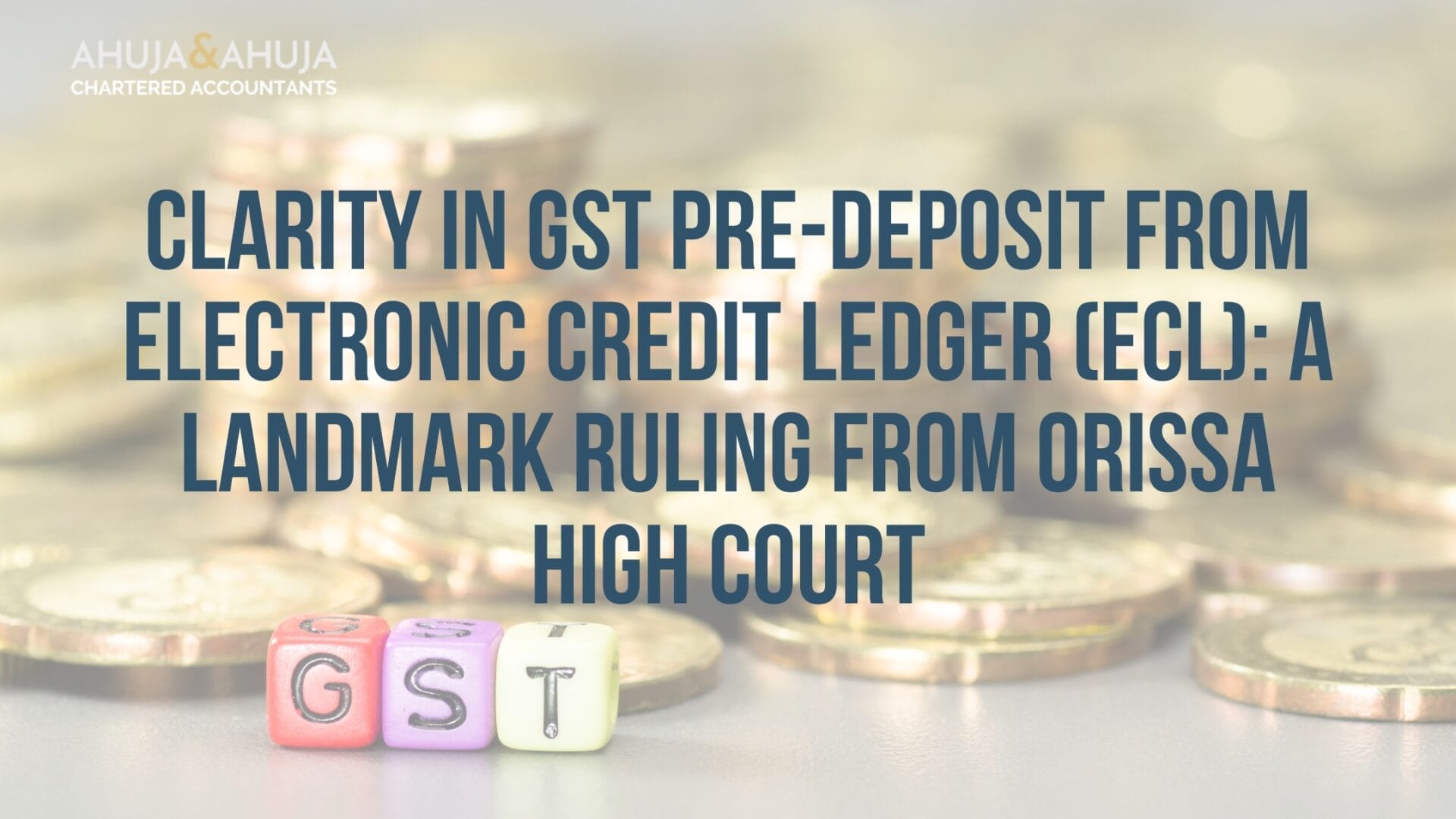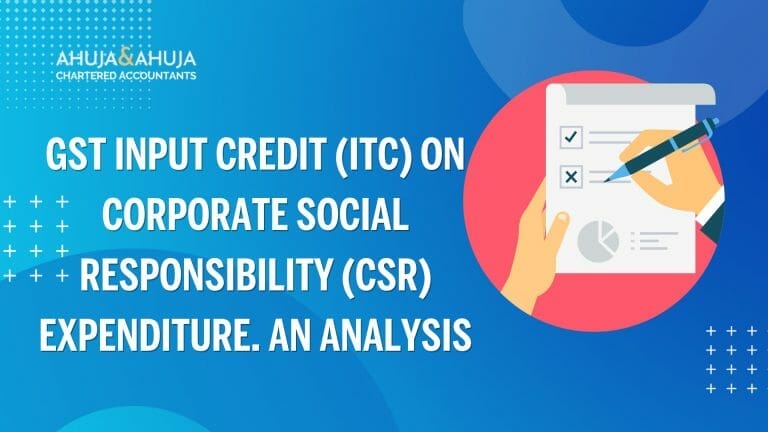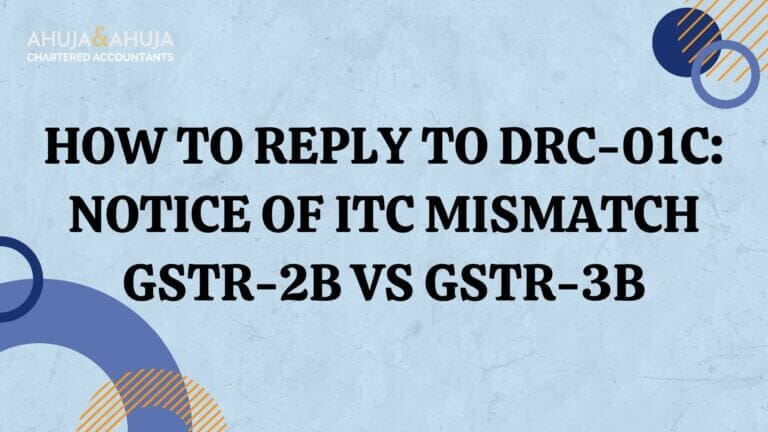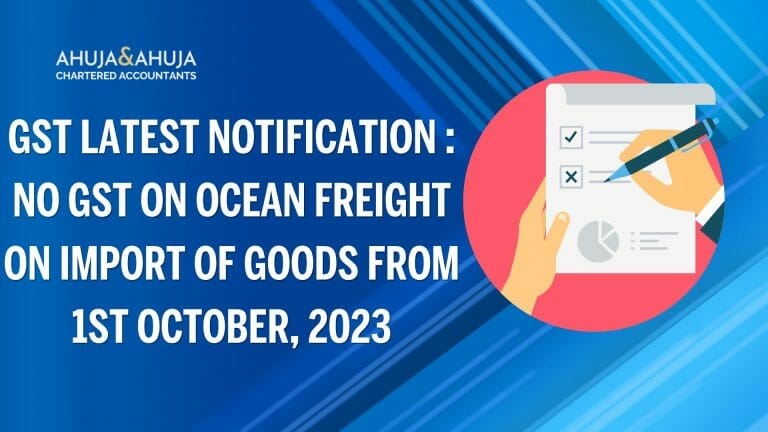Clarity in GST Pre-Deposit from Electronic Credit Ledger (ECL): A Landmark Ruling from Orissa High Court
In the ever-evolving landscape of Goods and Service Tax (GST), numerous complexities often arise. GST, a comprehensive indirect tax levied on the supply of goods and services, has been a subject of continual discussion and litigation. This article explores one of the critical topics under the realm of GST – the pre-deposit mechanism and the role of the Electronic Credit Ledger (ECL).
Regulated under the GST framework, a pre-deposit is a partial deposit of the disputed tax amount required to be made at the time of filing an appeal. The ECL, on the other hand, is essentially a passbook of the input tax credit amount that a taxpayer can utilize against their GST liabilities.
Now that we understand what a pre-deposit under GST and an ECL are let’s move into the subject of our discussion – the legal battle between M/s. Kiran Motors and Addl. Commissioner of CT & GST.
Timeline and Context of the Case
Dated back to March 31, 2023, M/s. Kiran Motors, the renowned automobile company (the Petitioner), found itself at the center of a GST issue. Their appeal, filed before the 1st Appellate Authority, was rejected on the grounds of having debited the pre-deposit of 10% of the admitted tax amount through the ECL.
Astonishingly, an earlier circular dated back to July 06, 2022, the CBIC had clarified that payment of a pre-deposit could be executed by using the ECL. However, it seemed, the 1st Appellate Authority held a variant interpretation of the same, leading to the rejection of the appeal.
Striving to rectify what it deemed was an erroneous interpretation of the process, M/s. Kiran Motors filed a writ before the Hon’ble Orrisa High Court, seeking justice. In the next segment of our article, we will dive deeper into the court’s verdict and further implications.
Stay tuned to our GST category for additional insights and updates on GST matters.
Court’s Decision
After careful consideration of the facts and arguments presented, the Hon’ble Orissa High Court delivered its judgment in the case of M/s. Kiran Motors v. Addl. Commissioner of CT & GST (W.P (C) No.22817 of 2023) on August 10, 2023. The court held that the payment of a pre-deposit under GST can indeed be made using the Electronic Credit Ledger (ECL), in line with the circular issued by the CBIC on July 06, 2022.
Consequently, the Impugned Order of the 1st Appellate Authority, which rejected the petitioner’s appeal due to the utilization of the ECL for the pre-deposit, was set aside. The court further directed the matter to be relisted before the 1st Appellate Authority on September 11, 2023, for a fresh disposal.
Implications of the Decision
The ruling by the Orissa High Court in the Kiran Motors v. Addl. Commissioner case has brought clarity on the usage of the Electronic Credit Ledger (ECL) for pre-deposits under GST. By validating the CBIC’s circular, the court emphasizes the importance of consistent application and interpretation of GST rules and guidelines across various appellate authorities.
This judgment not only benefits M/s. Kiran Motors but also sets a noteworthy precedent for similar cases in the future. It establishes that taxpayers can use the Electronic Credit Ledger (ECL) to comply with the pre-deposit requirement, thus providing them with more flexibility and convenience in managing their GST obligations.
In conclusion, the Orissa High Court’s decision in the Kiran Motors case ensures adherence to the GST provisions and preserves the rights of taxpayers while promoting a harmonious and efficient functioning of the GST regime.
Continue reading our GST blog for more insights on GST-related matters and stay updated with the latest developments in the field.
Frequently Asked Questions (FAQs)
What is a pre-deposit under GST and why is it important?
A pre-deposit is a partial deposit of the disputed tax amount that a taxpayer is required to make when filing an appeal under GST. It serves as a legal requirement to proceed with the appeal process and ensures that a certain amount is secured before the final determination of the case.
What is an Electronic Credit Ledger (ECL)?
The Electronic Credit Ledger (ECL) is a digital account maintained by a registered taxpayer to record the input tax credit (ITC) available to them. It acts as a ledger to track and utilize the ITC against their GST liabilities.
How does the Orissa High Court’s decision affect pre-deposits under GST?
The Orissa High Court’s decision clarifies that taxpayers can use the Electronic Credit Ledger (ECL) to fulfill the pre-deposit requirement under GST. This allows taxpayers greater flexibility in managing their financial obligations and brings uniformity in the interpretation of GST rules across appellate authorities.
What is the significance of the Orissa High Court’s decision on wider GST-related matters?
The court’s decision sets a precedent for similar cases, providing clarity on using the Electronic Credit Ledger (ECL) for pre-deposits. It promotes consistency and ensures that taxpayers can rely on the CBIC’s circulars to guide their compliance with GST provisions.
What does this case mean for other businesses grappling with similar issues?
The ruling in the Kiran Motors case brings relief to businesses facing disputes related to pre-deposits. It emphasizes the importance of following the CBIC’s circulars, reducing ambiguity, and providing businesses with a framework to comply with GST requirements.
Exploring Key Takeaways and Salient Questions of Law Answered
Now that we have covered the background, the court’s decision, and the implications of the judgment in the M/s. Kiran Motors v. Addl. Commissioner of CT & GST case, let’s dive deeper into the key takeaways and the salient questions of law that were answered by the court.
Key Takeaways from the Judgment
- Acceptance of Electronic Credit Ledger (ECL) for Pre-deposits: The Orissa High Court clarified that the payment of a pre-deposit under GST can be made through the Electronic Credit Ledger (ECL), as per the circular issued by the CBIC on July 06, 2022. This provides taxpayers with the flexibility to utilize their input tax credit (ITC) to fulfill the pre-deposit requirement.
- Rejection of Impugned Order: The court set aside the Impugned Order of the 1st Appellate Authority, which rejected the petitioner’s appeal based on the usage of the ECL for pre-deposit. The judgment reinstates the petitioner’s right to have their case heard afresh before the 1st Appellate Authority.
- Reaffirmation of Consistent Application of GST Rules: The court’s decision reinforces the importance of consistent interpretation and application of GST rules and circulars across various appellate authorities. It ensures that taxpayers are not subjected to varying interpretations of the law, promoting uniformity and clarity in GST-related matters.
Salient Questions of Law Answered
- Can a Pre-deposit under GST be Made through the Electronic Credit Ledger (ECL)?: The court unequivocally answered this question in the affirmative. It affirmed that the payment of a pre-deposit can indeed be accomplished using the Electronic Credit Ledger (ECL), consistent with the circular issued by the CBIC.
- What is the Significance of Circulars Issued by the CBIC in GST Matters?: The court’s decision highlights the significance of circulars issued by the CBIC in providing guidance and clarity on GST provisions. It emphasizes that taxpayers can rely on these circulars to ensure compliance with the law and protect their rights.
- How Does the Judgment Impact Taxpayers’ Approach to Pre-deposits under GST?: The judgment provides certainty and flexibility to taxpayers by allowing them to use the Electronic Credit Ledger (ECL) for pre-deposits. This enables taxpayers to effectively manage their GST obligations and utilize their input tax credit (ITC) when fulfilling pre-deposit requirements.
Disclaimer
The materials provided herein are solely for educational and informational purposes. No attorney/professional-client relationship is created when you access or use the site or the materials. The information presented on this site does not constitute legal or professional advice and should not be relied upon for such purposes or used as a substitute for professional or legal advice.







